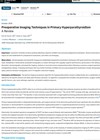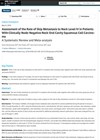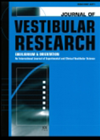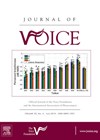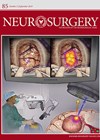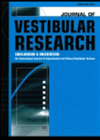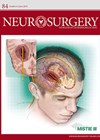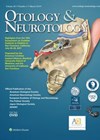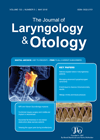
Journal Reviews
Imaging of the parathyroid glands in primary hyperparathyroidism: where do we stand?
Primary hyperparathyroidism (PHPT) refers to an intrinsic parathyroid gland abnormality that produces excessive secretion of parathyroid hormone. PHPT is diagnosed biochemically, and surgical excision of the abnormal parathyroid tissue represents the only definitive cure. Historically, the standard operative management of...
Is dissection of level IV necessary in patients with negative neck oral cancer?
Supraomohyoid neck dissection (SOHND) refers to the removal of lymph nodes contained in levels I-III and is currently referred to as a selective neck dissection levels I-III. This type of neck dissection has been frequently used in the management of...
MRI in diagnosis Meniere’s disease: what is the evidence?
The utility of magnetic resonance imaging (MRI) in the diagnosis of Meniere’s disease (MD) has attracted a lot of interest recently. It is well accepted that the saccule is the most common vestibular organ affected by endolymphatic hydrops (EH) and...
A novel scale for the assessment of tracheoesophageal voice quality – the SToPS
There is currently no assessment tool in widespread use that permits a valid and reliable perceptual assessment of voice quality following laryngectomy. Such a scale is needed to investigate the functional outcomes of surgical voice restoration and rehabilitation regimes. Existing...
Reliability of Koos classification
Vestibular schwannoma (VS) tumour size has been considered the primary determinant of hearing outcomes and facial nerve function according to several published studies. Varying methods are used to estimate the size and volume of the VS with very little consensus...
Follow-up of NF2 patients with ABRs, SDS and MRI
Hearing loss is one of the earliest manifestations in vestibular schwannomas with 60% of the patients having high frequency loss. Several metabolic and mechanical factors influencing the cochlea and cochlear nerve have been implicated in the hearing decline noted in...
Do steroids improve outcome in acute vestibular neuritis?
The role of steroids in short and long-term recovery from acute vestibular neuritis has been a subject of debate for several years. The authors reported findings of a prospective randomised trial in 60 adult patients. Inclusion criteria were acute vertigo...
Single surgery for repair of tegmen defects and superior semicircular canal dehiscence
This retrospective review of 34 patients undergoing repair of the temporal bone defect via the middle cranial fossa approach provides the author’s management strategy for two problems: superior semicircular canal dehiscence and tegmen defects. The incidence of both these pathologies...
What we need to know about the new frontier of inner ear therapies
This is an interesting and topical review of the emerging biotechnology and pharmaceutical solutions for hearing loss and related conditions such as tinnitus. This paper suggests we are on the cusp of a very large step-change in the way we...
Validating a new international cholesteatoma classification – a necessary but challenging task
A European and Japanese joint consensus statement was published in 2017 which proposed a new cholesteatoma staging classification (EJS), with four stages. This follow-up publication aims to assess the internal and external validity of the staging system using existing prospectively...
Radiological diagnosis of mastoiditis in patients screened for acoustic neuroma
Magnetic resonance imaging is the ‘gold standard’ for screening patients suspected to have acoustic neuroma. Various abnormalities are picked up through this investigation, one of which, not uncommonly reported, is mastoiditis. This requires referral to otolaryngology and further evaluation. In...
Systemic steroid therapy for reduction of macrophage migration inhibition factor in the control of nasal polyposis
It is believed that macrophage migration inhibitory factor mediates inflammation by stimulating the release of other pro-inflammatory cytokines. The use of systemic steroids in control of nasal polyposis is an established treatment. In this study the authors have aimed at...

